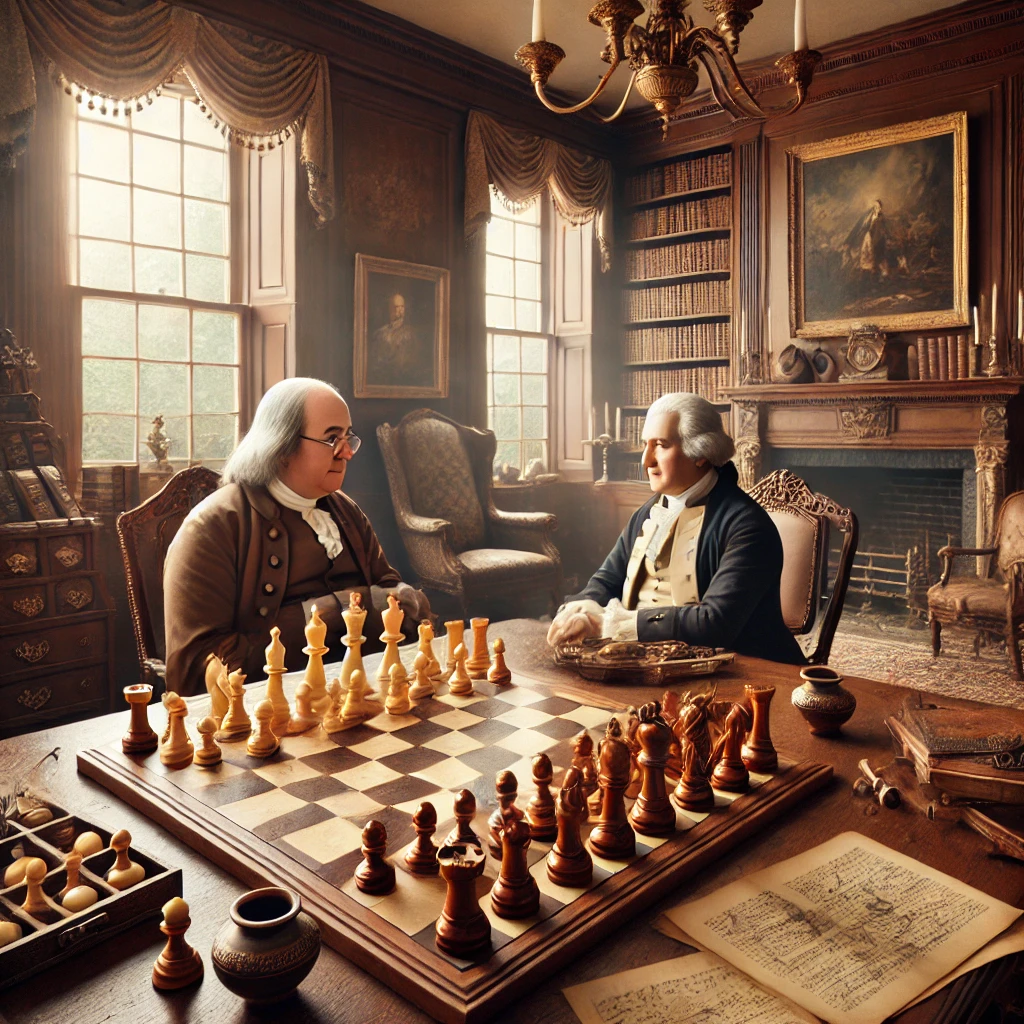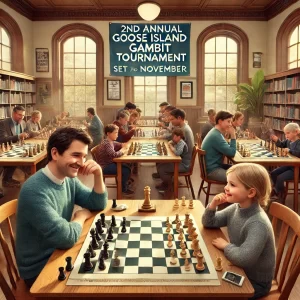While the history of chess sets in America is significantly shorter than that of Europe or Asia, it’s no less captivating. Early American chess sets were as diverse as the themes and cultures they represented.
Chess sets first made their way to America in the mid-1700s, brought by settlers and diplomats from Europe. Benjamin Franklin, one of the most prominent figures of the time, owned a fine wooden chess set, likely of English origin. Although Franklin wasn’t a chess master, he enjoyed the game, particularly in the company of women. His chess matches often intertwined with political discussions, as he visited influential circles both in the United States and abroad, especially in France. Franklin’s set featured elegantly smooth wooden pieces, intriguingly shaped like small eggs—possibly designed for travel or mere admiration.
Thomas Jefferson, our third President, was another chess enthusiast with a notable collection. One of his sets, crafted from bone, was colored red and white, echoing Franklin’s style. Interestingly, some pieces of this set were composed of up to eight separate parts, connected by threaded fittings akin to screws. Another of Jefferson’s sets was intricately carved from ivory, depicting figures from a conflict in 18th-century Africa. On one side of the board were colonial French figures, while the other side featured Native Africans, reflecting the historical context of the time.
Chess wasn’t just a pastime for Presidents. James Monroe, another U.S. President, and early industrialist Alfred Dupont also owned chess sets. Occasionally, craftsmen created chess sets to commemorate specific events or battles. A notable example is a vibrant set made in 1933 to celebrate the Battle of Saratoga, a pivotal 1777 conflict during the Revolutionary War that marked a turning point in America’s fight for independence.
The variety of themes and historical references represented in these early American chess sets is truly remarkable. Today, Franklin’s chess sets are housed in the American Philosophical Society, an organization he founded. Chess set collecting continues to thrive, with enthusiasts seeking both functional and decorative pieces as beautiful works of art and craftsmanship.



